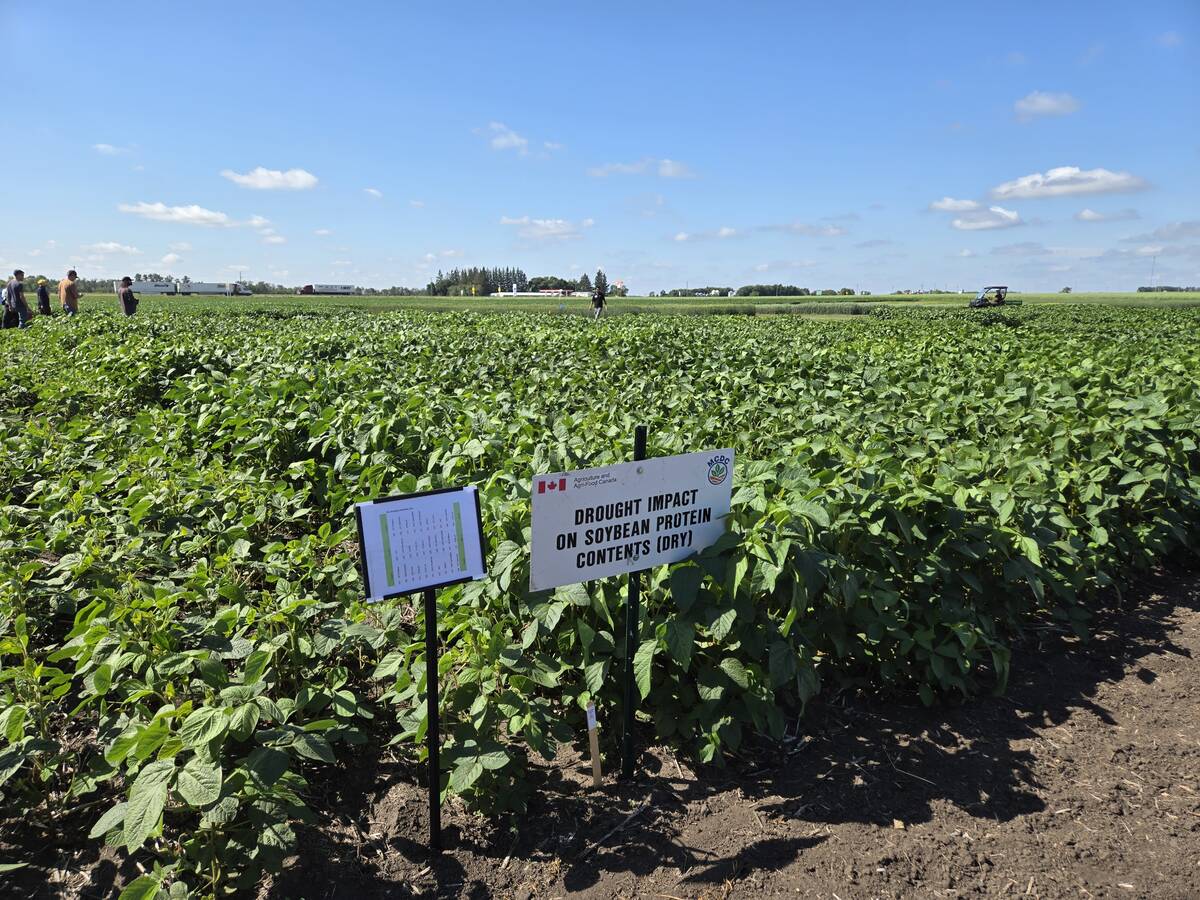As expected, finance minister Paul Martin did not use his Feb. 28 budget speech to throw more money at the farm income problem, but he did make a promise to farmers.
If they still need help in two years when the latest federal-provincial income disaster program ends, more help could be available, as long as the provinces come along.
“Should grain prices and farm incomes not improve by 2002, additional funding may be considered for that year, provided an overall agreement with provinces has been reached on federal-provincial support for farmers,” the government said in the 2000 “budget plan” presented to Parliament late Feb. 28.
Read Also

Carberry field day looks for agriculture solutions
Manitoba farmers explored research solutions for resilient crops, perpetual agronomic issues and new kinds of agricultural products at a field day at the Manitoba Crop Diversification Centre in Carberry on Aug. 6.
In his speech, Martin also referred to the farm issue. “The crisis faced by farm families and communities across the country is real, and better short-term and long-term solutions are required.”
Saskatchewan New Democratic Party MP Lorne Nystrom said the vagueness was disappointing.
“I am surprised there is not a solid commitment to farmers.”
Winnipeg Liberal John Harvard saw it differently. “This is a good budget for farmers, a commitment to a long-term program, tax cuts that will help farmers, child benefits that will help farmers.”
But if there was no specific commitment to new farm aid, the budget did contain a number of spending promises aimed at helping the food system and rural areas.
There is the promise of $2.65 billion over six years for infrastructure and highways and Martin made a particular point of saying that rural Canada will benefit.
“Whether it is urban transit, a grain road on the Prairies or the highways of our country, the capacity to move people and goods safely and efficiently is key to an innovative and productive economy,” he said in his speech.
His budget document tabled in the House of Commons went further.
It noted there are particular problems with declining services in rural Canada, including a threat to the continued existence of the communities.
The finance minister said it is important that rural Canadians understand they will benefit from Canada’s prosperity.
“Indeed, the new economy offers opportunities to rural Canada,” said the budget plan.
“In the year ahead, all orders of government must work to broaden and harness these opportunities so that the benefits of the new economy take root in all parts of the country.”
The budget also offers an extra $54 million over three years for the Community Futures Program, an economic development fund for small and rural communities.
Ottawa also set the groundwork for impending endangered species legislation.
The budget promised $90 million over the next three years to support its legislation. After 2003, the funding will total $45 million annually.
“That will include money for habitat protection and species protection,” a government official said. “But there is no set share dedicated to land owners.”
The budget also promised $90 million over the next three years to fund improved “regulation of biotechnology,” including more money to Health Canada’s health protection branch, which assesses the products of biotechnology for safety.
Martin said biotechnology has great potential but also raises concern.
“Canadians want to know that we understand and can manage its risks, that health, environmental and ethical limits will be identified and respected,” he said.
“Therefore, this budget will provide funding over the next three years to ensure that as we receive the benefits of biotechnology, we also have the ability to ensure its safety.”














